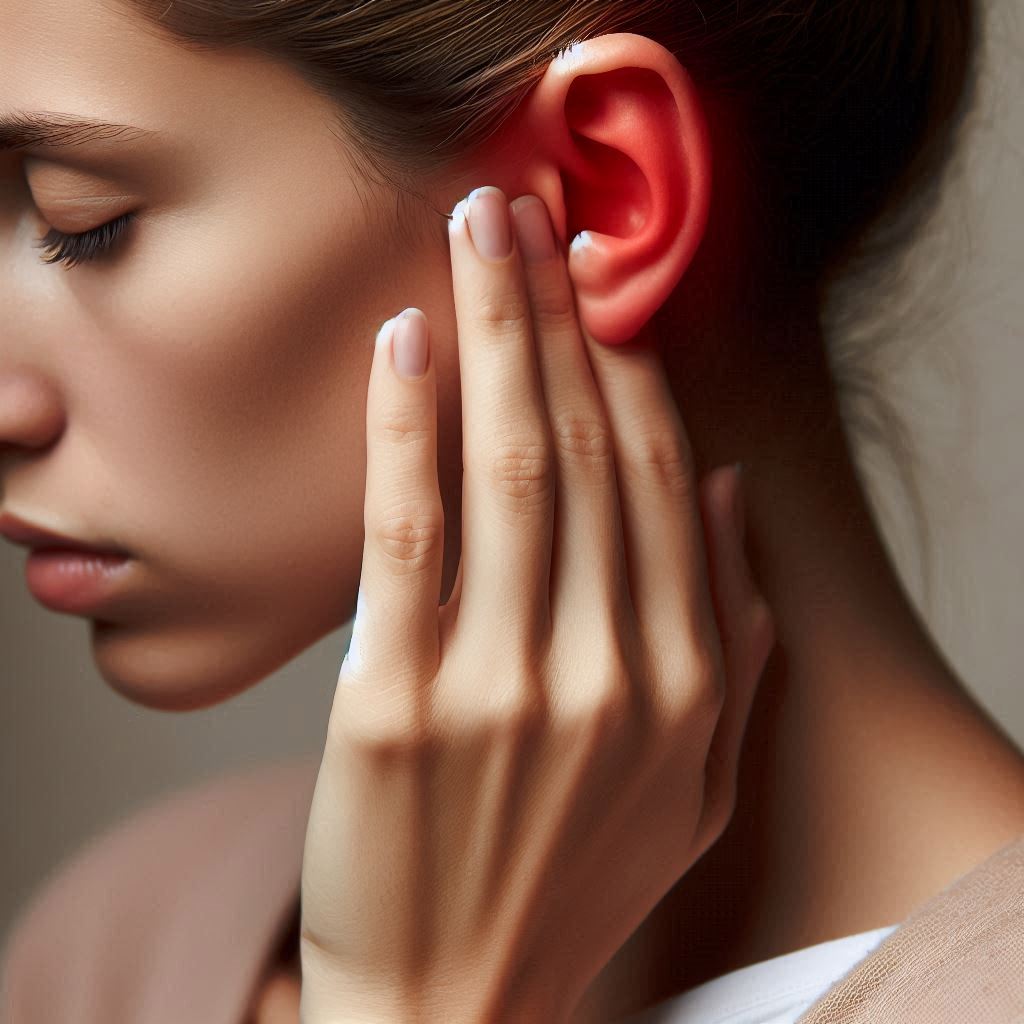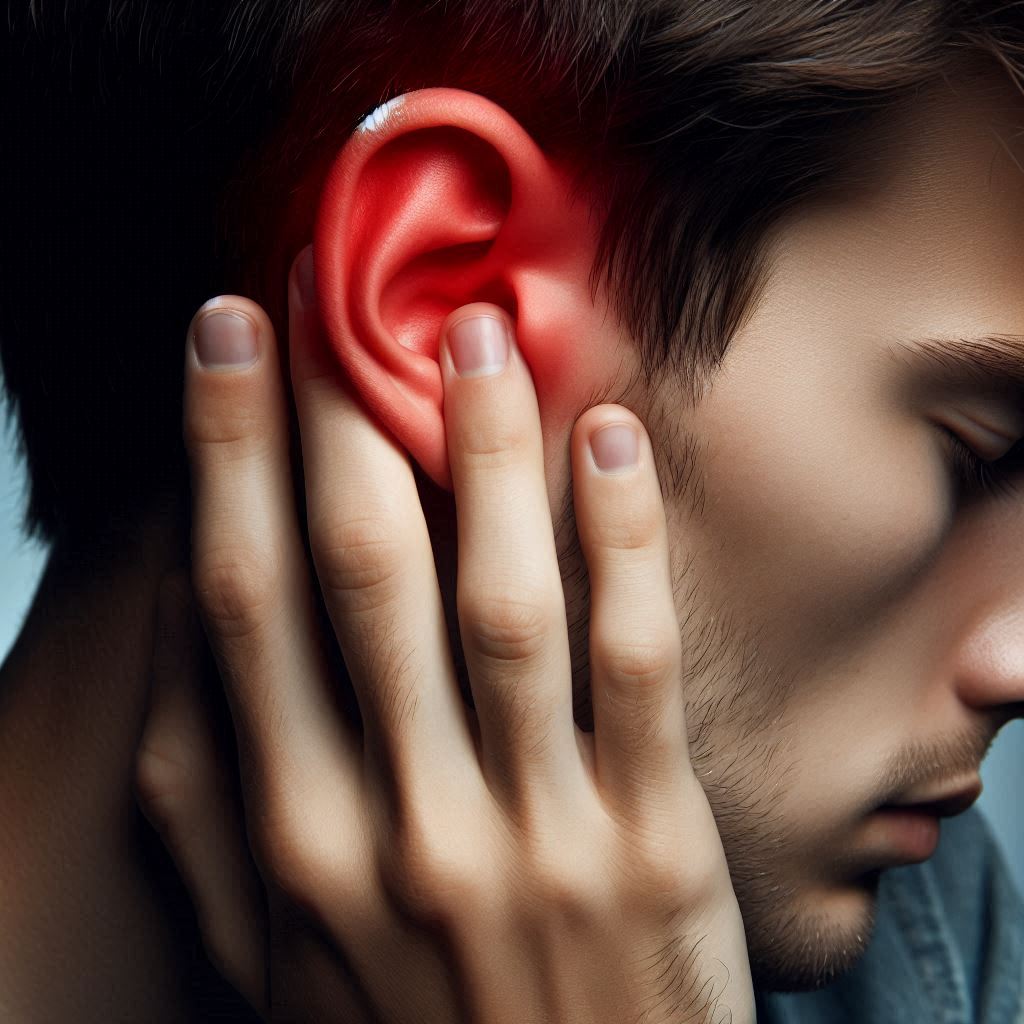Dealing with a ruptured eardrum can be uncomfortable, especially when it comes to getting a good night’s sleep. Knowing the right sleeping position can help ease discomfort and promote quicker healing. Here’s an easy guide to help you sleep better while taking care of your ear health.

What is a Ruptured Eardrum?
A ruptured eardrum, also known as a perforated eardrum, is a small tear or hole in the thin membrane separating your outer ear from your middle ear. This membrane is essential for hearing and protecting the ear from infections.
Common Causes Include:
- Ear infections
- Loud noises (concerts, explosions, etc.)
- Sudden air pressure changes (flying or scuba diving)
- Using cotton swabs or foreign objects in the ear
- Injuries or trauma
Symptoms typically include sharp pain, hearing loss, dizziness, or fluid discharge.
Why Does Sleeping Position Matter?
Your body does most of its healing while you rest, so sleep is critical to recovering from a ruptured eardrum. Sleeping incorrectly can increase pressure or discomfort and slow down the healing process. Choosing the right position will help avoid further irritation and allow your ear to heal more comfortably.
The Best Sleeping Position
The short answer? Sleep with your injured ear facing up. Here’s why:
- One ear affected: Lie on the side of the unaffected ear to reduce pressure on the injured ear and allow fluid to drain.
- Both ears affected: Sleep on your back with your head slightly elevated using extra pillows. This helps reduce strain and fluid buildup.
An example? Sarah had a ruptured eardrum after a long flight. She made the mistake of sleeping on her injured side, which worsened the pain. The next night, she switched to the opposite side with a few extra pillows — and finally got a peaceful night’s sleep!
5 Tips for Sleeping Comfortably
- Choose the Right Side
If only one ear is ruptured, sleep on the opposite side to avoid pressure.
- Elevate Your Head
Use one or two extra pillows to keep your head elevated. This reduces pressure and helps with fluid drainage.
- Avoid Earplugs
Earplugs can trap moisture or irritate the eardrum further. Go without them until your ear heals.
- Limit Noise in Your Room
Keep your bedroom quiet using blackout curtains or white noise machines to avoid straining your ears.
- Take a Pain Reliever
Over-the-counter options like ibuprofen can reduce pain and inflammation, letting you fall asleep more comfortably.
Additional Ear Health Tips

Healing a ruptured eardrum involves more than just finding the right sleeping position. These tips will help you recover faster while keeping your ears protected.
- Keep Water Out
Cover your ear with a cotton ball and petroleum jelly while showering. Avoid swimming until your doctor gives the all-clear.
- Avoid Foreign Objects
Don’t use cotton swabs or anything else inside your ear — this can make the perforation worse.
- Pause Flying or Diving
Avoid air pressure changes from flights or underwater activities to prevent further complications.
- Take Breaks Throughout the Day
If you’re feeling fatigued, rest in an elevated position during the day to support your healing process.
When to See a Doctor
Most ruptured eardrums heal on their own within a couple of months. However, if you experience severe pain, prolonged hearing loss, or persistent dizziness, consult a healthcare provider.
Common Treatments Include:
- Antibiotics: To treat or prevent infections.
- Surgery: Tympanoplasty is often recommended if the eardrum doesn’t heal naturally.
Act early if you’re unsure about your symptoms. Healthcare professionals like Miracle-Ear can help you determine the best course of action.
Sleep Better, Heal Faster
Sleeping with a ruptured eardrum doesn’t have to be a challenge. By using the correct sleeping position, avoiding strain, and following these simple tips, you can prioritize your ear health while giving your body the time it needs to heal.
Got more questions? Take charge of your ear health and visit Miracle-Ear to explore personalized hearing solutions today.

